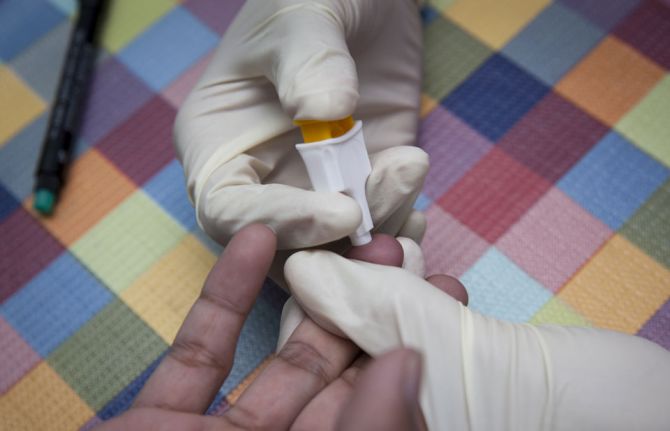

Update
WHO, UNAIDS statement on HIV testing services: new opportunities and ongoing challenges
29 August 2017
29 August 2017 29 August 2017The World Health Organization (WHO) and UNAIDS have released a joint statement on HIV testing services that reinforces two key principles that ensure a human rights-based and public health approach to HIV testing.
The statement says that HIV testing, no matter how it is delivered, must always respect personal choice and adhere to ethical and human rights principles. It makes it clear that WHO and UNAIDS do not recommend mandatory, compulsory or coerced HIV testing of individuals on public health grounds.
The statement also explains that in order to minimize the risk of HIV misdiagnosis, all providers of HIV testing services must use HIV test kits and testing procedures that meet WHO quality standards or other equivalent national or regional quality standards. Testing procedures must be validated in each setting, depending on the population HIV prevalence. Regular external quality assurance should also be in place in order to rapidly detect potential causes of HIV misdiagnosis.
The position of WHO and UNAIDS is that no one should be given an HIV-positive diagnosis on the basis of a single positive HIV test result. National HIV testing procedures should be followed to confirm an HIV-positive test result and everyone should be re-tested before starting on lifelong antiretroviral therapy.
The 2017 UNAIDS report Ending AIDS: progress towards the 90–90–90 targets estimates that only 70% of people living with HIV are aware of their HIV status. This is the first of the 90–90–90 targets, whereby, by 2020, 90% of people living with HIV know their status, 90% of people living with HIV who know their status are receiving antiretroviral treatment and 90% of people on treatment have suppressed viral loads.
Quotes
“Scaling up access to HIV testing is critical to ending the AIDS epidemic by 2030, offering everyone the right to know their HIV status through high-quality national HIV testing programmes that respect every individual’s dignity and human rights.”



